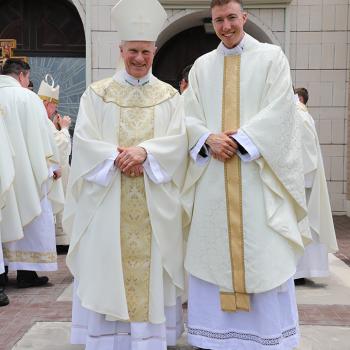Suicide impacts everyone. There is a suicide in the United States every twelve minutes, and it is the tenth leading cause of death!
Why one would resort suicide is a matter of debate and there is hardly a cut and dry scenario to pull from. Not to mention: Christians are not immune to it. A few months ago an evangelical pastor Jarrid Wilson took his own life. Wilson was a mental health advocate and very open with his struggle with depression. His death brought the subject of suicide and mental health to the forefront. Once again we see the same comments that display a sincere ignorance on the topic.
Are those who die of suicide committed to hell? Are there extenuating circumstances? The Catechism of the Catholic Church addresses these questions in paragraphs 2280-2283.
The Catechism describes suicide as “Gravely contrary to the just love of self. It likewise offends love of neighbor because it unjustly breaks the ties of solidarity with family, nation, and other human societies to which we continue to have obligations. Suicide is contrary to love for the living God” (CCC 281).
In error some stop here to make the point that all who die of suicide were unable to repent of this mortal sin. At this juncture it is necessary to define what makes a sin mortal. For a sin to be mortal the following three criteria must be met: 1) Grave matter, 2) Knowledge that it is wrong, and 3) consent of your free will.
There is no doubt that suicide is something that constitutes a grave matter, but are all who go through with it in the proper frame of mind for all criteria to be met?
The Catechism answers this question with an emphatic “no”! In paragraph 2282 the Catechism reads, “Grave psychological disturbances, anguish, or grave fear of hardship, suffering, or torture can diminish the responsibility of the one committing suicide.”
The eternal fate of those who commit suicide is something that is not for us to judge. That is up to God alone. Who is not to say that someone who fulfilled the three criteria didn’t repent a microsecond before the deed was complete? The person who suffers with severe bouts of depression, as the Catechism says, was acting in a diminished capacity when the act was complete.
In short, only God knows. It is his role to be the judge of all of us (I don’t want that job as it would be a hard burden to bear). In paragraph 2283 the Catechism has this to say, “We should not despair of the eternal salvation of persons who have taken their own lives. By ways known to him alone, God can provide the opportunity for salutary repentance. The Church prays for persons who have taken their own lives”.
God is a loving Father who knows what we are going through, and only he knows what was going on with the person who died from suicide. He alone knows if they were cognizant of what they were doing. The Church calls us to pray for those who have taken their own lives. What good would praying for victims of suicide if was an automatic sentence to hell? The Church asks us to pray for them because we are a Faith of hope and love, not of fear.
Those who die of suicide are created in the image of God. He loves them just as he loves you and me. God alone is the judge, and he is the only one qualified to judge the fate of suicide victims. That would be too big a burden for any of us to bare. Through his Holy Church, God has made known that there is hope for eternal life, and it is the same hope we all have.
Pray for those who died of suicide and pray and comfort their families. Let them know that the Church loves them and is behind them. That includes those loved ones who are no longer on this Earth.













